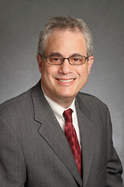IHA - Does your doctor really listen to you?

Stephen Rosenblum, MD, FACC
But instead of just ordering the tests, I asked him what he meant by “shortness of breath.” After some discussion, it became clear he didn’t get winded easily — that’s what most people mean when they say “shortness of breath.” Instead, he was concerned he couldn’t sing the prayers at synagogue like he used to. He didn’t seem to have the lung capacity and breath control he once did.
After hearing this, I began to suspect heart disease wasn’t the cause of his shortness of breath. It sounded neurological. An exam and neurological tests soon revealed he had a serious neurological disease, and I referred him to the appropriate specialists.
As a subspecialist in cardiology, I have many high-tech tools and sophisticated tests available to help me diagnose and treat patients. In certain instances, these tools are remarkably useful. But I’m convinced my most valuable diagnostic tools are my ears and my brain.
A willingness to listen to patients and their family members is essential for any physician. Unfortunately, many of us don’t do it nearly well enough.
A recent study suggests most doctors interrupt their patients and redirect the conversation after only 23 seconds. In his book, "How Doctors Think," Dr. Jerome Groopman claims it often takes only 18 seconds. That doesn’t give patients much time to explain their medical concerns and symptoms. Clearly many physicians don’t place a high value on listening to patients.
There are many reasons for this. The practice of medicine is extremely complicated; there never seems to be enough time; it’s easy for physicians to feel pulled in many directions.
That’s why my partner and I consciously remind ourselves every day to slow down and really focus on our patients — not only listening to what they are saying, but also how they are saying it. Careful observation of non-verbal clues from patients and family members can be important too.
As an example, I recently asked a patient how he was feeling. He quickly responded, “I’m fine, doc.” But at that moment, his wife rolled her eyes and shook her head almost imperceptibly. That non-verbal clue prompted me to probe a little deeper with additional questions. If I hadn’t been focused on listening and observation, I might have missed it. As it turned out, he was minimizing his symptoms and had some serious medical concerns.
Want your doctor to listen to you? Here are a few tips that might help:
- Choose a physician who listens. If you go to a doctor and don’t feel your concerns and experiences are valued, it might be time to choose another doctor.
- Write down a list of your concerns and symptoms before you go to the doctor, and then put your three most important concerns at the top. Work from that list during your visit. When a doctor sees you’ve prepared a list of questions and concerns, he or she often shifts into listening mode.
- Be persistent. If you are getting near the end of your visit and you don’t feel like your main concern has been addressed, bring it up again.
- Write a one-sentence description of why you are seeing the doctor. Be prepared to read it aloud. “The reason I came to see you today is….”
- Be organized. Before your visit, type up a list of all your current medications, past surgeries, hospitalizations and procedures. Present this to the doctor at the start of the visit. It will save time so he or she can focus on listening to your present concerns and symptoms.
Stephen Rosenblum, MD, FACC, is board-certified in Internal Medicine, Cardiovascular Disease, and Echocardiography. During his 25 years in practice, he has been an investigator in a number of research trials involving the prevention of cardiac disease and the development of new techniques in the field of interventional cardiology. He practices at IHA Cardiology Consultants at 870 Arkona Road, Suite 100, Milan, MI 48160. He can be reached at 734-439-4005. For more information, please visit www.ihacares.com.

